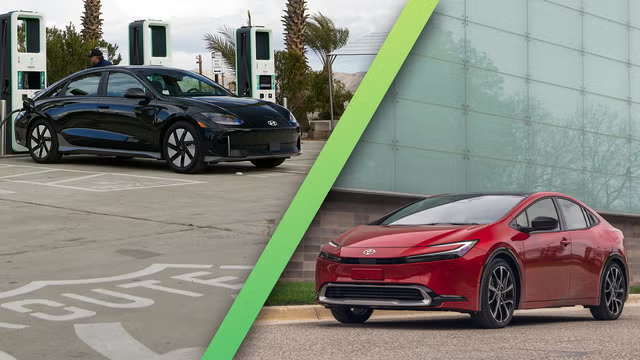Hybrid Cars
Introduction
Hybrid cars have emerged as a pivotal solution in the automotive industry’s shift toward sustainability. Combining the efficiency of electric motors with the reliability of internal combustion engines, hybrid vehicles offer a practical bridge between traditional gasoline-powered cars and fully electric models. This article explores the mechanics, benefits, challenges, and future of hybrid cars in the context of a rapidly evolving transportation landscape.
What Are Hybrid Cars?
Hybrid cars utilize two or more power sources—typically a gasoline engine and an electric motor—to propel the vehicle. The most common configurations include:
- Parallel Hybrids: Both the gasoline engine and electric motor can power the wheels simultaneously or independently, as seen in models like the Toyota Prius.
- Series Hybrids: The gasoline engine generates electricity to charge the battery, which powers the electric motor, as in some versions of the Chevrolet Volt.
- Plug-in Hybrids (PHEVs): These have larger batteries that can be charged externally, offering extended electric-only driving ranges, like the Mitsubishi Outlander PHEV.
The synergy of these powertrains allows hybrids to optimize fuel efficiency and reduce emissions compared to conventional vehicles.
How Hybrid Cars Work
Hybrid vehicles operate through a sophisticated interplay of components:
- Internal Combustion Engine (ICE): Typically smaller than in traditional cars, the ICE runs on gasoline or diesel and kicks in during high-speed or heavy-load conditions.
- Electric Motor: Powered by a battery pack, the motor assists the engine or drives the car independently, particularly at low speeds.
- Battery Pack: Stores energy for the electric motor, recharged via regenerative braking or the engine.
- Regenerative Braking: Captures energy during braking and converts it into electricity to recharge the battery.
- Power Control Unit: Manages the flow of energy between the engine, motor, and battery to maximize efficiency.
This combination enables hybrids to switch seamlessly between power sources, optimizing performance and fuel economy based on driving conditions.
Benefits of Hybrid Cars
Hybrid cars offer several advantages that make them appealing to environmentally conscious consumers and cost-savvy drivers alike:
- Fuel Efficiency: Hybrids consume less fuel than traditional vehicles, with models like the Toyota Corolla Hybrid achieving up to 53 MPG (EPA rating, 2023).
- Reduced Emissions: By relying on electric power for part of the drive, hybrids produce fewer greenhouse gases and pollutants.
- Cost Savings: Lower fuel consumption and potential tax incentives (e.g., U.S. federal tax credits up to $7,500 for PHEVs) reduce long-term costs.
- Versatility: Hybrids don’t rely on charging infrastructure, making them suitable for areas where electric vehicle (EV) charging stations are scarce.
- Smooth Driving Experience: The electric motor provides instant torque, resulting in quiet and responsive acceleration.
Challenges of Hybrid Cars
Despite their benefits, hybrid cars face certain limitations:
- Higher Upfront Costs: Hybrids are often more expensive than their gasoline-only counterparts due to complex technology, though prices are decreasing.
- Battery Longevity: While modern hybrid batteries last 8–10 years, replacement costs can range from $2,000 to $8,000.
- Limited Electric Range: Non-plug-in hybrids rely heavily on the gasoline engine for longer trips, unlike fully electric vehicles.
- Performance Trade-offs: Some hybrids prioritize efficiency over power, which may not satisfy performance-oriented drivers.
- Environmental Impact of Batteries: Battery production and disposal raise concerns about resource extraction and recycling.
The Future of Hybrid Cars
As the automotive industry transitions toward electrification, hybrids remain a critical part of the landscape. In 2024, global hybrid sales grew by 12% (IEA data), reflecting strong demand in markets like Europe and Asia. Automakers like Toyota, Honda, and Ford are expanding their hybrid lineups, with models like the 2025 Toyota Camry Hybrid and Ford Escape Hybrid gaining popularity.
Looking ahead, advancements in battery technology, such as solid-state batteries, could enhance hybrid efficiency and reduce costs. Additionally, stricter emissions regulations worldwide are pushing manufacturers to refine hybrid systems as a complement to fully electric vehicles. Hybrids are likely to remain relevant, especially in regions with limited EV infrastructure, serving as a pragmatic solution for reducing carbon footprints without sacrificing convenience.
Conclusion
Hybrid cars represent a balanced approach to sustainable transportation, blending the familiarity of gasoline engines with the efficiency of electric power. While they face challenges like higher costs and battery concerns, their benefits—fuel savings, lower emissions, and versatility—make them a compelling choice for many drivers. As technology advances and environmental priorities intensify, hybrid cars will continue to play a vital role in shaping the future of mobility.
